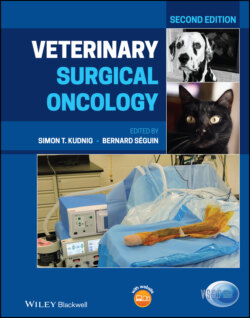Читать книгу Veterinary Surgical Oncology - Группа авторов - Страница 15
Preoperative Considerations Signalment
ОглавлениеThe patient’s age, gender, breed, and weight are important factors in the determination of appropriate recommendations. Advanced age is not necessarily a negative prognostic factor. Comorbidities common to geriatric veterinary patients such as renal insufficiency, hepatic disease, or osteoarthritis may limit or change specific treatment recommendations; however, the age of the patient alone should not.
Certain neoplastic diseases are common in a particular gender or breed. The surgical oncologist should always bear in mind the role that gender and breed play in the diagnosis of neoplasia. As an example, the differential list for a flat‐coated retriever with a femoral bony lesion noted on radiographs that has been referred for a suspected diagnosis of osteosarcoma should be expanded to include histiocytic sarcoma; other diagnostics such as an abdominal ultrasound would be recommended to look for other foci of histiocytic disease.
Other portions of the signalment are also important to note, including the patient’s weight and body condition. Patients that are morbidly obese or those in poor body condition may not be able to function effectively or may be more severely debilitated by a major surgery. For example, a patient with cancer cachexia can have such profound alterations of their carbohydrate, protein, and fat metabolism that recovery may be compromised (Ogilvie 1998).
